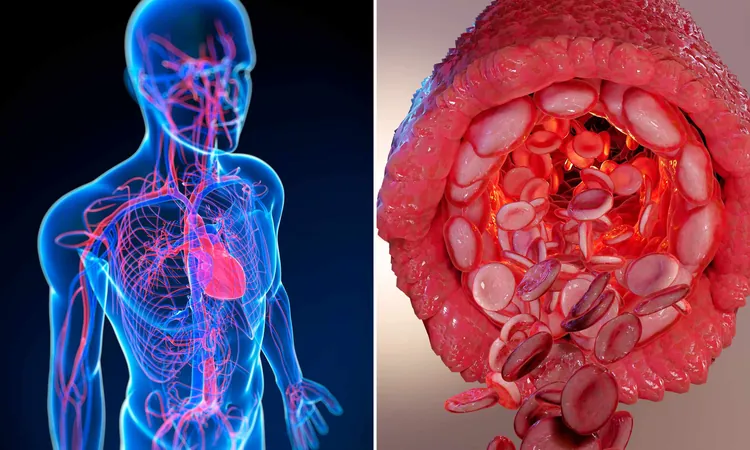
Groundbreaking Discovery: New Human Blood Group MAL Uncovered After Half a Century of Research!
2025-01-16
Author: Wai
A Historic Revelation
On September 16, 2024, the scientific community buzzed with excitement as it was announced that the long-mystified antigen, previously referred to as AnWj, has been officially classified under a new blood group system. Dr. Louise Tilley, Senior Research Scientist at NHS Blood and Transplant, expressed her enthusiasm, stating, “The genetic background of AnWj has been a mystery for more than 50 years, and I’ve been trying to decipher it for nearly two decades.”
Unraveling the Mystery of AnWj
Through collaborative research efforts in the UK, scientists discovered that the MAL protein is integral in determining whether someone's blood cells exhibit the AnWj antigen. Individuals lacking this protein—referred to as AnWj-negative—can face severe complications if they receive blood from AnWj-positive donors, heightening the risk of adverse transfusion reactions.
The Role of Gene Manipulation
The road to this discovery was paved with ingenuity. Professor Ashley Toye from the University of Bristol highlighted how gene manipulation techniques have revolutionized the identification of blood groups. By targeting the specific location on the MAL gene responsible for the absence of the Mal protein, researchers were able to resolve the longstanding enigma surrounding the AnWj antigen.
MAL: The 47th Blood Group System
This new classification places MAL as the 47th recognized blood group system, expanding our understanding of human genetics beyond the familiar ABO and Rh categories. The identification of additional blood group systems is crucial as it informs blood banks about rare donor compatibility, optimizing the matching process for patients in need.
The Power of Modern Genetics
Modern techniques like exome sequencing have significantly contributed to the study of rare blood conditions. By honing in on the areas of DNA responsible for producing proteins, researchers were able to pinpoint the malfunctioning segments that prevent the formation of the MAL protein, thereby clarifying why certain individuals do not express the AnWj antigen.
The Human Element
While people lacking the AnWj antigen are considered rare, the implications of this research are profound. It emphasizes the need for meticulous care in transfusion practices and the importance of accurately identifying blood types to protect vulnerable patients. Dr. Tim Satchwell, who contributed to the research, emphasized the challenges in uncovering the elusive Mal protein, reflecting the determination required to achieve this significant milestone.
A Future-Focused Approach
With the introduction of the MAL blood group system, healthcare professionals can now approach transfusions with enhanced knowledge, laying the groundwork for better outcomes for patients with rare blood types. The medical community anticipates that this progress will lead to expanded screening capabilities to capture a wide array of unique blood markers.
Ultimately, the discovery of the MAL blood group is not just a scientific achievement; it represents hope for countless patients reliant on accurate blood typing and safe transfusions. As we move forward, the ongoing pursuit of knowledge promises to enhance the landscape of human health care, ensuring that every individual receives the best possible medical attention tailored to their specific needs.




 Brasil (PT)
Brasil (PT)
 Canada (EN)
Canada (EN)
 Chile (ES)
Chile (ES)
 Česko (CS)
Česko (CS)
 대한민국 (KO)
대한민국 (KO)
 España (ES)
España (ES)
 France (FR)
France (FR)
 Hong Kong (EN)
Hong Kong (EN)
 Italia (IT)
Italia (IT)
 日本 (JA)
日本 (JA)
 Magyarország (HU)
Magyarország (HU)
 Norge (NO)
Norge (NO)
 Polska (PL)
Polska (PL)
 Schweiz (DE)
Schweiz (DE)
 Singapore (EN)
Singapore (EN)
 Sverige (SV)
Sverige (SV)
 Suomi (FI)
Suomi (FI)
 Türkiye (TR)
Türkiye (TR)
 الإمارات العربية المتحدة (AR)
الإمارات العربية المتحدة (AR)